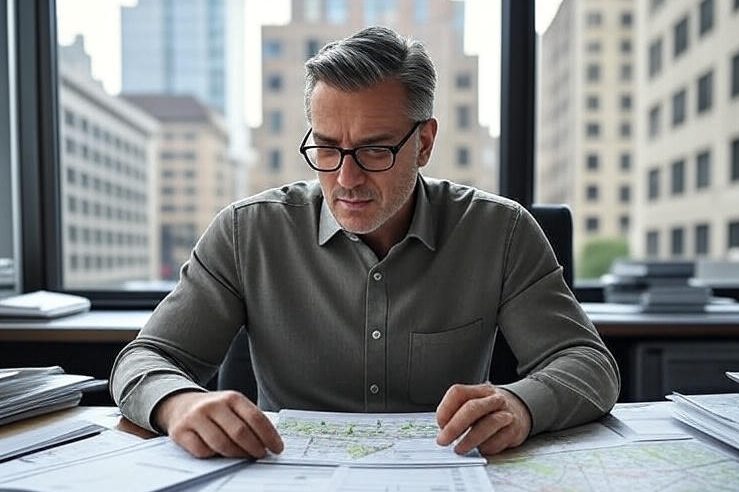
South Korea’s massage and entertainment salon industry faces intense scrutiny. City governments across the nation grapple with regulating these businesses, often caught between economic pressures and moral debates. Since the 2004 Act on the Punishment of Arrangement of Commercial Sex Acts, local administrations have enforced crackdowns, reshaped zoning laws, and navigated public outcry. Yet, the approaches vary widely, reflecting the unique political and cultural landscapes of each city. How do these municipal strategies differ, and what do they reveal about South Korea’s broader societal tensions?
In Ulsan, a coastal industrial hub, the salon industry thrives in the shadows of shipyards and factories. The city’s permissive stance has allowed entertainment districts to flourish, often with minimal oversight. Websites like OPCMD showcase Ulsan adult entertainment sites, highlighting the visibility of these venues despite legal restrictions. However, this leniency sparks controversy. Residents argue that lax enforcement fuels illicit activities, while business owners claim these salons boost local economies. Ulsan’s approach contrasts sharply with other cities, where stricter policies dominate.
Seoul’s Heavy-Handed Crackdowns
Seoul, the capital, takes a hardline stance. The city’s government has demolished red-light districts, citing urban renewal and public safety. Following the 2004 sex trade ban, Seoul intensified police raids, arresting thousands of workers and clients. These efforts, however, have mixed results. While some districts vanished, others relocated to less visible areas. Critics argue that Seoul’s aggressive tactics push the industry underground, making it harder to regulate. Meanwhile, advocates for sex workers decry the loss of livelihoods, pointing to violent incidents, like a 2014 case where a worker died fleeing a raid.
Seoul’s policies reflect a push for a “clean” city image, but at what cost?
Daejeon’s Redevelopment Strategy
Daejeon, a central city, opts for redevelopment over confrontation. Once home to a prominent red-light district near Yuseong Hot Springs, the town faced pressure from residents and officials to clean up the area. By the 2010s, aggressive zoning changes and apartment complex construction displaced many salons. However, the industry didn’t disappear; it migrated to nearby Dunsan and Yuseong districts. This shift highlights a key challenge: crackdowns often relocate rather than eliminate the problem. Daejeon’s approach shows a preference for urban transformation, but it sidesteps deeper social issues tied to the industry.
Busan’s Balancing Act
In Busan, a port city, authorities tread a delicate line. The local government enforces periodic crackdowns but avoids sweeping bans. Salons near Haeundae Beach cater to tourists and locals, contributing to the city’s vibrant nightlife. Busan’s leaders face pressure to maintain tourism revenue while addressing moral concerns from conservative groups. The result? A patchwork of enforcement, strict in some areas, lax in others. This inconsistency frustrates both residents, who demand clarity, and workers, who face unpredictable raids. Busan’s strategy reveals the tension between economic pragmatism and societal expectations.
The Role of Public Sentiment
Public opinion heavily influences these municipal policies. In conservative regions, vocal resident groups push for tougher regulations, framing salons as moral decay. In contrast, urban centers with younger populations often view the industry as a private matter. Social media amplifies these debates, with platforms like X showcasing polarized views. Some call for decriminalization, arguing it would protect workers and reduce violence. Others demand total eradication, citing ethical concerns. For those feeling the weight of these ongoing conflicts, proven strategies to manage political stress offer helpful guidance. City governments, caught in the crossfire, often tailor their policies to local sentiment, leading to inconsistent enforcement nationwide.
Zoning Battles and Economic Impacts
Zoning laws are a key battleground. Cities like Seoul and Daejeon use zoning to restrict salons to specific areas or push them out entirely. Yet, these regulations spark legal and economic disputes. Business owners argue that zoning unfairly targets them, while residents claim that salons lower property values. The economic stakes are high—salons generate significant revenue, especially in tourist-heavy cities. However, the social costs, including crime and exploitation, fuel calls for reform. Balancing these factors challenges city planners, who must navigate legal frameworks and public pressure.
Looking Ahead: Reform or Repression?
South Korea’s salon industry sits at a crossroads. Will cities continue aggressive crackdowns, or will they explore decriminalization? Seoul’s hardline approach contrasts with Ulsan’s permissiveness, while Daejeon and Busan seek a middle ground. Each strategy reflects local priorities—economic growth, urban renewal, or moral standards. Yet, the human cost remains undeniable. Workers face stigma, violence, and displacement, while clients risk legal repercussions. As debates rage, one thing is clear: city governments hold immense power in shaping the industry’s future. Their choices will ripple through South Korea’s social and economic fabric for years to come.
